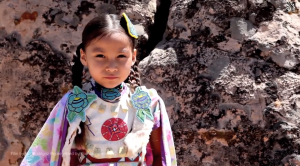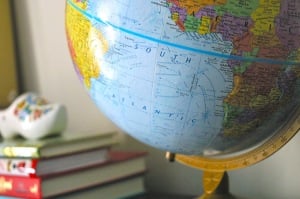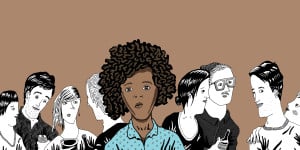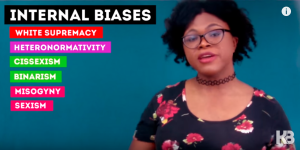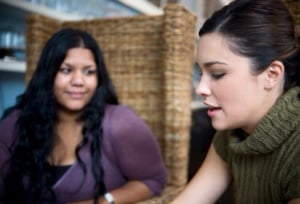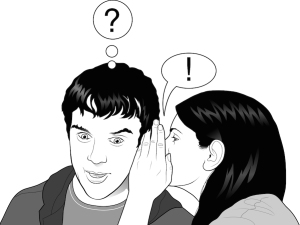
Person looking upset with hand on furrowed brows.
I grew up thinking I was white.
When I was 8 years old, I would play House with my best friend, a cisgender South Asian girl. I was Eric, and she was Ashley — we were a quintessential heteronormative white couple.
I would pretend to read huge books in a matter of seconds — really, skimming dictionaries and then proudly looking up at my (girl)friend for affirmation — while she primped her hair in the mirror.
As it turns out, many years later, I’ve realized that I’m a trans, gender-expansive South Asian and have lots of problems with cisgender white boys named Eric.
But being a non-Black South Asian from an upper-class immigrant household, I assimilated so hard that I came to identify almost completely with the white people around me.
This view of myself drove a wedge between my family and me; I grew distant from my parents when I became subsumed in my friends and caught up in the belief that they were too culturally different to understand me in all of my “white” Americanness.
It also led me to experience a comfort with whiteness which I now am realizing has been hugely self-destructive for my personal growth, self-acceptance, and ability to engage with other people of color.
I want to speak to those of you who are interested in thinking about your race more critically, and understanding how we as Asian Americans can be complicit in siding with whiteness.
In sharing, I intend to list qualities that I have seen in myself and the Asian Americans I have grown up around so that we can check ourselves before somebody else has to.
Let’s Get To It
The category of Asian American is way too vast to capture in one listicle — dozens of countries of origin, numerous races, citizenship statuses, religions, and varying income levels and degrees of historical discrimination.
Instead, I’ll direct this article at those of you who are more similar to me: non-Black Asian Americans with socio-economic privilege.
As Asian Americans with privilege, it’s easy to side with whiteness. With our privileges, we become — as I jokingly call it when I’m alone with my thoughts — white-minded. Here’s how:
1. When we appropriate Black culture
We as Asian Americans often offensively appropriate Black styles, Black slang, and pass around memes and GIFs of Black folks — recently dubbed as digital blackface.
As Love Life of An Asian Guy explains, sometimes Asian Americans who grow up in communities with Black people assimilate into Black culture because in these settings we feel that white and Black culture are our two options.
We choose to assimilate into Black culture, and to adopt Black role models, because we experience racism from white people and we experience identity crises in being constantly regarded by both white society and native Asians as foreigners. As ‘not belonging.’
Having grown up around mostly white people and South Asians, I can’t really relate to this. In the communities I grew up in, Asian Americans would appropriate Black culture with an astounding distance from Black people.
But, regardless of our early life experiences and exposure to Black culture, all of us need to understand one thing: cultural appropriation contributes to the exploitation of Black people, in a society which values Black culture and violently devalues Black people.
So, we need to work on ways to develop our identities and senses of belonging while being conscious of these structural power dynamics.
This means rejecting the abundance of messages telling us that we aren’t Americans, or “real Asians,” and seeing ourselves as people of color who have a responsibility to combat anti-Black racism.
2. When we say the N-word
As a lot of you probably know, the N-word was historically used to oppress Black people. More recently, many Black folks have reclaimed and redefined the term.
As an Anthropology student, I can tell you this: reclaiming a word is only possible for an individual who belongs to a group that has historically experienced oppression from that word.
So, sorry folks, it’s never been for us.
The sooner we realize this, the sooner we can get on to being better for our fellow people of color and, ultimately, ourselves.
3.When we don’t recognize the ways that we, as Asian Americans, experience oppression
We non-Black Asian Americans with class privilege might not recognize these histories of struggle, and can feel even closer to whiteness on account of the belief that all Asian Americans have lived lives similar to ours.
What many of us don’t recognize is that our experiences (yup, even in 2017!) are enormously varied. We’re super economically diverse.
For example, while Indian American households earn twice the national average income, Bangladeshi and Cambodian American households have lower than average household incomes; and, the latter groups make up a staggering 40 to 45 percent of the Asian American population!
Jeff Guo of the Washington Post points out that when we only look at the average household income level for all Asian Americans we overlook the economic diversity that exists amongst us (and, in doing so, keep up the model minority myth that enforces the idea that we’re better, and more “successful” than other people of color).
This ignorance is one of the main reasons we tend to side with whiteness.
We think we’re a model minority, but many of us don’t realize that we have histories and present realities of oppression and resistance as part of our experience.
4. When we participate in anti-Black humor
It’s my opinion that racist jokes always come from real-life racial anxiety or bias held deep within ourselves.
And 2012 data from the Pew Research Center actually shows that 28% of Asian Americans claim that their Asian American group gets along “not too/not at all well” with Black people.
So, don’t make racist jokes. Because everyone who lives in the US has internalized anti-Black racism to some degree, and Asian Americans are definitely no exception.
5. When we brush off or laugh at jokes about ourselves, our culture, or our family’s accents
Asian Americans often play along with jokes about ourselves, our culture, and our family because, deep down, we just want to fit in. We want to be liked and make people laugh.
I’m not trying to tell you that this is why you, specifically, might make or tolerate these jokes, but just give it some thought next time you’re mimicking an Asian accent. Why is it that your friends find it so funny?
6. When we find comfort in whiteness
When we grow up with white people, we learn to love and care for them. We see white people as fully emotional and complex human beings. This isn’t wrong. In fact, it’s great to be empathetic and understanding.
What is wrong (or, actually, violent) is when, due to our ignorance, we place the emotions of white people over the structural violence that they perpetuate through unexamined privilege — essentially humanizing white people over people of color.
It’s violent when we identify so strongly with white people that we fail to see the ways that they are complicit in white supremacy, and the ways that they — implicitly or explicitly — harm other people of color.
7. When we identify with white systems of thought
Our privilege leads us to identify with systems of thought like political conservatism, white liberalism, and white feminism.
Especially for those of us who don’t grow up around many other people of color, we can grow very comfortable with this thinking.
For example, if we identify with feminism that is actually white feminism, then we continue to not only delegitimize our experiences as Asian American people, but we can largely overlook the urgent importance of practically applied intersectionality in our politics.
8. When we don’t actively mobilize resources for people who have more urgent needs than we do
For those of us with socio-economic privilege, we need to use the resources, access, and wealth that we have to support individuals in our communities who are seeking assistance.
For example, we need to be supporting trans people of color who are seeking survival funds for housing, medical care, and gender-affirming treatment.
We need to support the work led by trans people of color, some of the most marginalized people in our communities, in a way that affirms and supports their existence.
9. When we don’t see ourselves as people of color with visions for supporting other people of color
The way that we label ourselves can determine our relationship to social groups — if we’re inside, outside, or somewhere in between. The identifier ‘people of color’ is no exception to this logic.
When we think more about our identities and experiences as people of color, we start to understand ourselves in the context of those who came before us, and the people of different experiences who exist all around us.
Considering our identities through this perspective allows us not only to identify as people of color in our language but for that label to actually mean something — namely, unity with other people of color in a common struggle against white supremacy.
10. When we don’t love or build community with people of color who are not Asian American
Our distance from people of color who are not Asian American — in addition to our already clear prejudices rooted in white supremacy — does not allow us to empathize with and understand others’ struggles.
I have seen and spoken about this at length with friends of color. White and Asian American people interested in racial justice will often continue to spend time exclusively with white people.
So, why don’t we branch out and demonstrate our care for other people of color? What’s holding us back?
***
As soon as we confront these realities, face the difficulties in coming to terms with our identities, and take our commitment to combating anti-Blackness and other forms of oppression seriously, we can truly begin to love our communities and ourselves.
[do_widget id=’text-101′]
Ayesha Sharma is a non-binary South Asian scholar and artist continually negotiating a relationship with themselves and their communities through practices of decolonization. They are most interested in literal and symbolic reclamation as an art practice and investing themselves in community care. Ayesha has written for the Urban Democracy Lab and is published in ANTYAJAA: Indian Journal of Women and Social Change.
Search our 3000+ articles!
Read our articles about:
Our online racial justice training
Used by hundreds of universities, non-profits, and businesses.
Click to learn more








